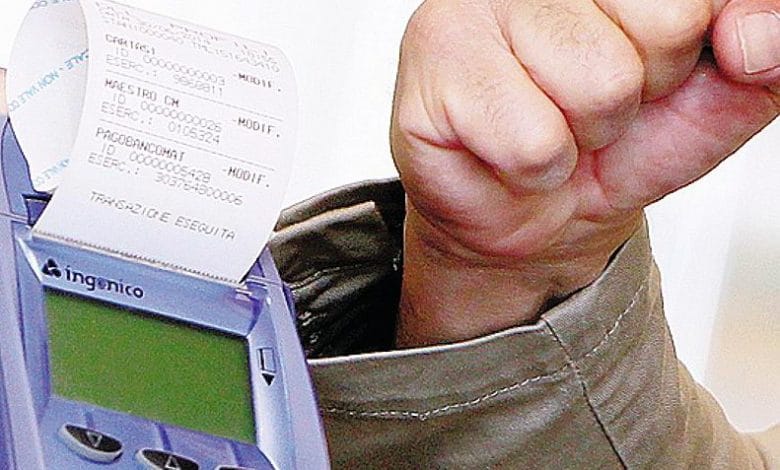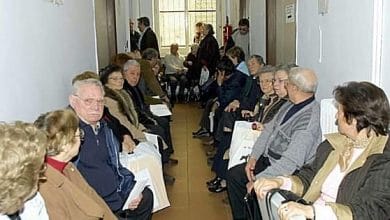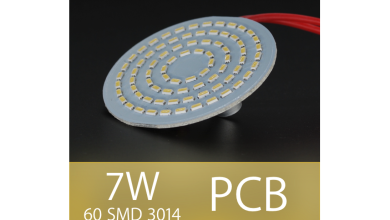
 "The suspension from the activity of the doctor without an ATM reader (Pos) aired in the bill 1147 is a serious and questionable provision: until proven otherwise, it would concern the entire activity of the professional with implications for the service he ensures". Bruno Di Lascio, president of Omceo of Ferrara is critical of the draft signed by Senator Pietro Aiello (Ncd) and the related penalties for the professional: 500 euros the first time he is "pinched" without a reader, 1000 on the second complaint and the stop all activity at the third.
"The suspension from the activity of the doctor without an ATM reader (Pos) aired in the bill 1147 is a serious and questionable provision: until proven otherwise, it would concern the entire activity of the professional with implications for the service he ensures". Bruno Di Lascio, president of Omceo of Ferrara is critical of the draft signed by Senator Pietro Aiello (Ncd) and the related penalties for the professional: 500 euros the first time he is "pinched" without a reader, 1000 on the second complaint and the stop all activity at the third.
«Ordered by a disciplinary body such as the Order, or in criminal proceedings, the sanction of suspension always affects all spheres of activity of the doctor, including employee and contractual work. For a Pos that is missing, a country could be deprived of a family doctor, subordinating the resident's right to health to the need to encourage administrative simplification.
An urgency which incidentally has already damaged our image: the Pos is treated as an anti-evasion tool which it is not (there are various ways to encourage emergence), and it is assumed that those who do not own it should be hit as if they were equal to the subjects that can be suspended on the basis of Presidential Decree 221/50. On these points I plan to sensitize my colleagues in charge of Fnom».
 In recent days some media had written that the sanctions for those who do not have the Pos reader - made mandatory in studies from 30 June 2014 - would start in April, but to date the bill in this regard has only been assigned to the Senate Finance Commission. Will he enter the tax delegation? The professionals insist on the fact that the burden has high costs (200 euros for installation plus a percentage from 0.5 to 2% on transactions, for those with invoices slightly higher than the minimum limit of 30 euros, transactions can be a drain) .
In recent days some media had written that the sanctions for those who do not have the Pos reader - made mandatory in studies from 30 June 2014 - would start in April, but to date the bill in this regard has only been assigned to the Senate Finance Commission. Will he enter the tax delegation? The professionals insist on the fact that the burden has high costs (200 euros for installation plus a percentage from 0.5 to 2% on transactions, for those with invoices slightly higher than the minimum limit of 30 euros, transactions can be a drain) .
Furthermore, the deduction of the cost of services from the taxable income included in the bill is a decoy: those costs are already deductible as they are inherent to the professional activity. For Di Lascio, «all the legislation on the Pos does not simplify anything but rather complicates life. From a legal point of view, the ope legis suspension of the doctor until 2009 was ordered on the basis of the Presidential Decree on orders for drug dealing, sentences of no less than 2 years' imprisonment, disqualification from public office and other cases referred to in articles 42 and 43 which outline a dangerous subject.
The Brunetta law in 2009 with the radiation for those who draw up sick certificates without visiting has posed the problem of revising the law on orders. There was no review and this sanctioning bill does not seem to address the problem of conflicting with the management of the right to health. If a recidivist agreement without reader were suspended, the entire activity would suffer due to a lack linked to duties imposed for an often residual free profession, from a few euros per year.
But there are also gaps in the bill. It is not said who issues the sanction: the Prefect (or the Quaestor) or the Public Prosecutor's Office? Nor is it clear how long the suspension is enforced. I believe - concludes Di Lascio - that we doctors have time and possibilities to advance our considerations ».





